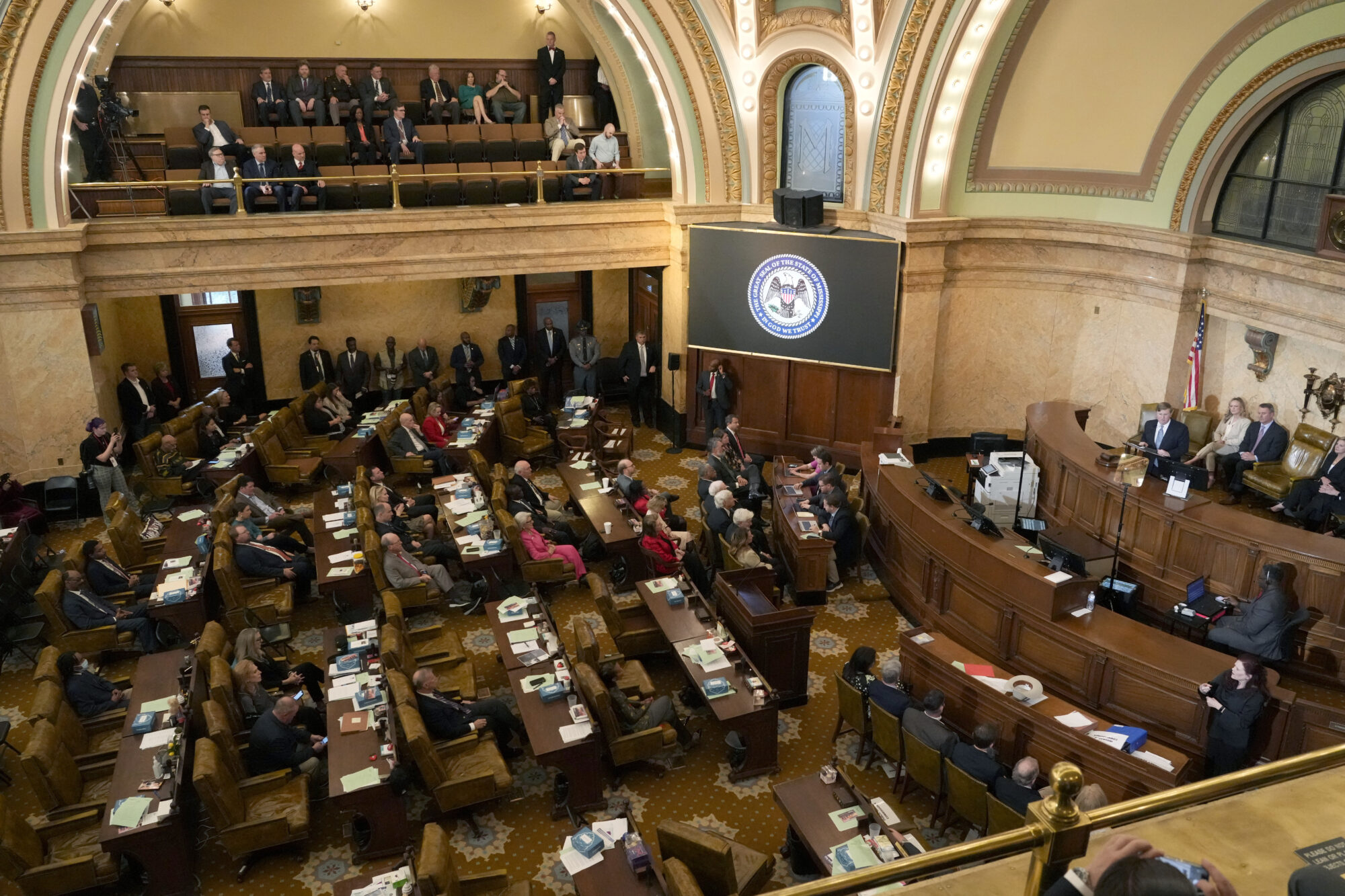
Studio portrait of Sid Salter. (photo by Beth Wynn / © Mississippi State University)
By: Sid Salter
In what has to date been an almost exclusively partisan enterprise, the Democratic U.S. House majority impeached President Donald Trump last month and walked those allegations across the Capitol to the Republican U.S. Senate, where the trial continues amid tension and high drama.
As that drama plays out on Capitol Hill, there’s not a great deal of mystery surrounding the eventual votes on the two articles of impeaching brought to the floor of the U.S. Senate by the House Managers – at least not by Mississippi’s senators.
Senior Mississippi U.S. Sen. Roger Wicker said on Dec. 19: “House Democrats made a historic mistake today. By impeaching President Trump on a partisan basis and with little evidence, they have set a dangerous precedent. The truth is, congressional Democrats have sought this result since the day Donald Trump was elected. Their effort has never been about the facts or accountability. It was always about politics and damaging a president they cannot tolerate. . .
“Now this process comes to the Senate, where the president will be treated fairly. I anticipate he will be acquitted and justice will be served. But significant damage has already been done.” Wicker said.
Mississippi’s junior U.S. Sen. Cindy Hyde-Smith said after the House impeachment vote: “Democrats have wanted impeachment since the day President Trump won the election in 2016. I’ve followed the House Democrats’ partisan hearings, and I haven’t heard or read anything regarding the charges against the President that rise to the level of impeachable offenses.
“Any attempt to remove a sitting President is a very serious matter. We don’t know the framework for a Senate trial, but I am confident the President will be treated more fairly in the Senate,” said Hyde-Smith.
Back in 1999, Mississippi was represented in the U.S. Senate by Republicans Thad Cochran and Trent Lott when the GOP-controlled House brought articles of impeachment against Democratic President Bill Clinton and the GOP-controlled U.S. Senate ultimately acquitted Clinton. Both Cochran and Lott voted to convict Clinton on both articles.
Mississippians played a significant role in the Watergate scandal in the early 1970s – and unlike the Trump and Clinton impeachment dramas, Mississippi’s U.S. senators were not burdened with partisan concerns over the looming impeachment of Republican President Richard Nixon.
Two Democrats, U.S. Sens. James “Big Jim” Eastland of Doddsville and John C. Stennis of DeKalb, were friends and confidantes of the Republican president. Nixon, in part because of Eastland’s status as Senate Judiciary Committee chairman and Stennis’ chairmanship of the Senate Armed Services Committee, opened the federal spending spigots wide in Mississippi after the devastation of Hurricane Camille in 1969.
As the Watergate noose tightened on the Nixon White House during the scandal in October of 1973, Nixon and his advisers were desperate not to release the Watergate tapes. As a last resort, the so-called “Stennis Compromise” was proposed by the White House.
Esteemed for his integrity, Stennis was to compare the White House-approved transcripts of the tapes to the actual tapes and certify the authenticity of the transcripts – less any national security information or frequent expletives. Watergate Special Prosecutor Archibald Cox rejected the proposal, which set in motion the “Saturday Night Massacre” in which Nixon summarily cleaned house in his own Justice Department.
Eastland, after the resignation of Vice President Spiro Agnew, became President Pro Tempore of the U.S. Senate. That status led to him being in a small meeting with Nixon and the five top congressional leaders on the night of Aug. 8, 1974, when Nixon addressed the nation on television and told of his intent to resign. Nixon formally resigned the next day.
Yet does partisanship matter in impeachment battles? Of course, it does. Notably, former Senate Majority Leader Trent Lott opposed impeaching Nixon in 1974 but supported impeaching Clinton in 1998. And Democratic 2nd District U.S. Rep. Bennie Thompson opposed impeaching Clinton in 1998 but supported impeaching Trump in 2019.











